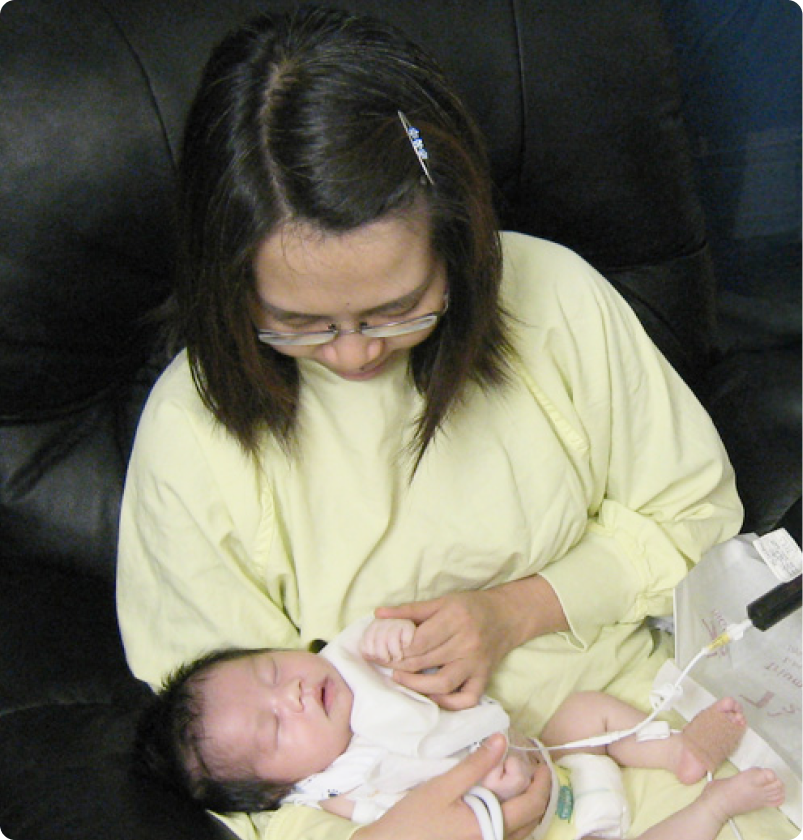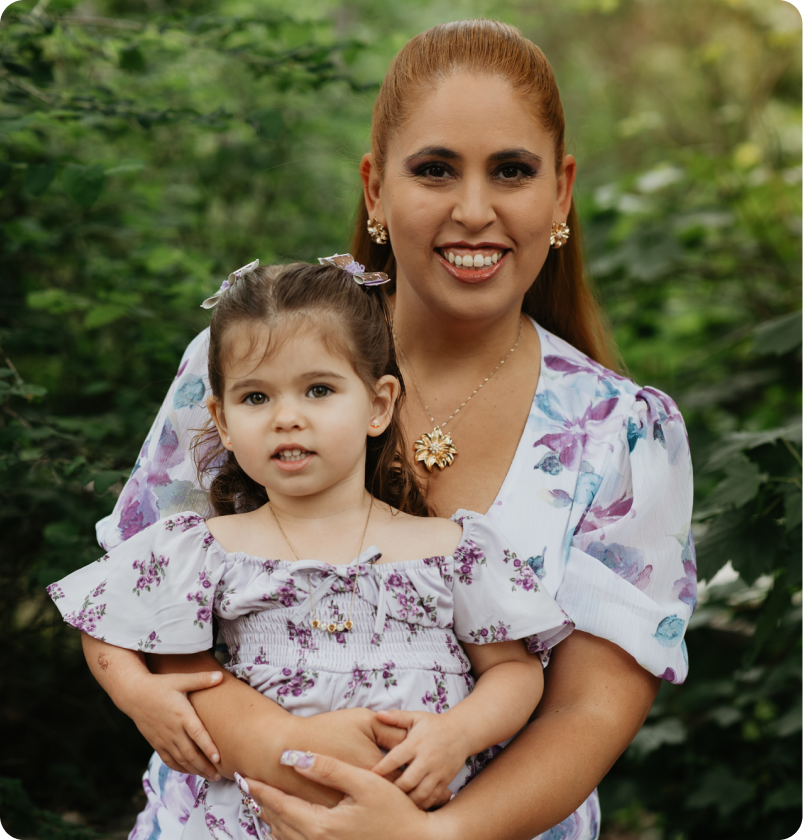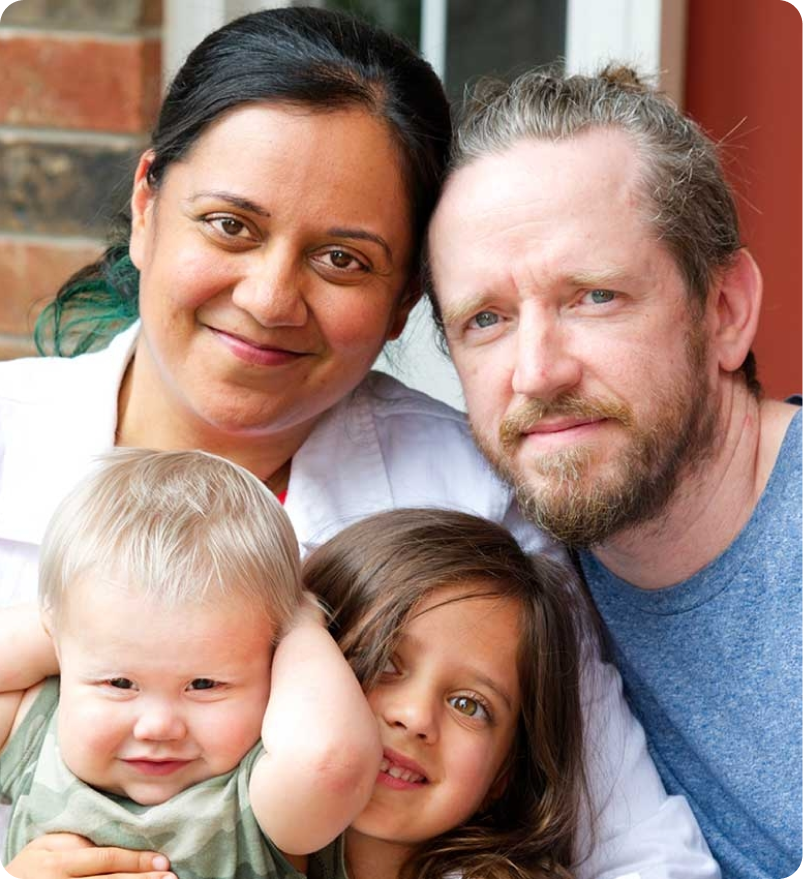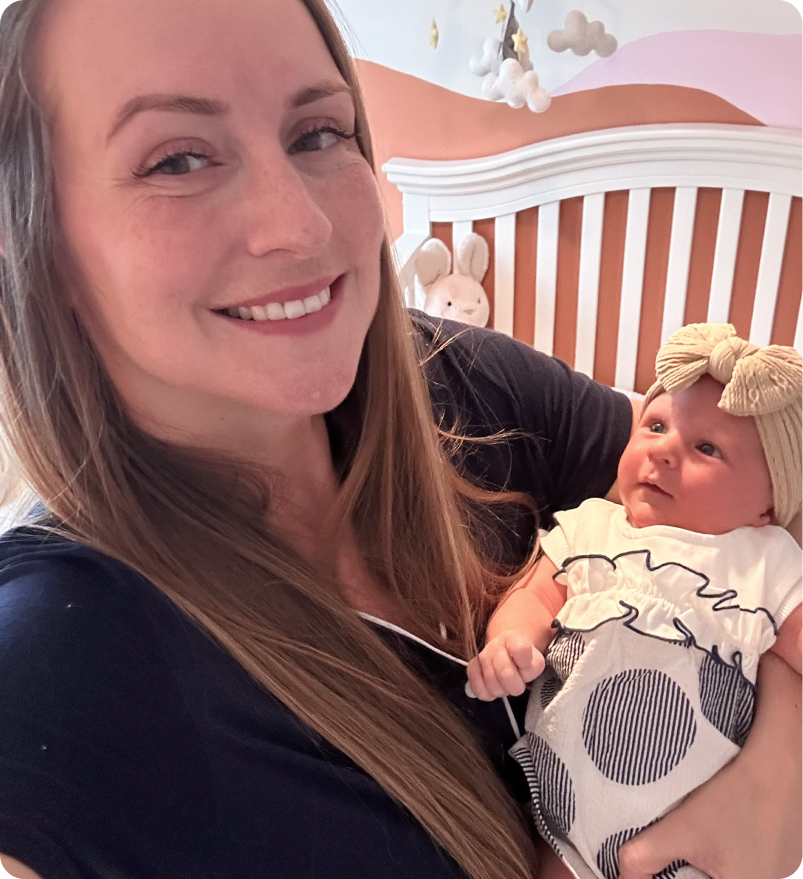Learn why cord blood is important, how it is collected and how it save lives.
Meet Tristan – a young boy whose life was saved by cord blood stem cells. Video below.
Donate cord blood at BC Women’s Hospital
What is cord blood?
After a baby is born, the blood left in the placenta and umbilical cord (cord blood) is rich with lifesaving stem cells.
There are many things that make cord blood unique. Unlike other methods of collecting stem cells, cord blood can be stored in the public cord blood bank and used at a later date for a patient in need. It is also a great option for ethnically diverse patients, as it is the only method of stem cell collection that doesn’t need to be a close DNA match.
Why donate cord blood?
Patients who won't find a stem cell match within their family
75%
Percentage of cord blood units used to treat patients under 4
40%
Patients in Canada waiting for a stem cell transplant
1,000
Your baby could be a tiny hero
Register today to donate cord blood
How you can donate cord blood
Words from our donors and patients
“Just like a generous cord blood donor saved my son’s life, you too could save a patient’s life.”

Words from our donors and patients
“Once we found out our baby’s cord blood could help someone, we knew we had to donate.”

Words from our donors and patients
"We had given when we were able, and I am so grateful we were able to receive a lifesaving donation for our son when we needed it."

Words from our donors and patients
“I would recommend all families register to donate. It costs nothing and cord blood can treat so many diseases and disorders.”

Words from our donors and patients
"When I heard that it was possible to make a difference in patients’ lives by donating cord blood, which is otherwise discarded, it was a no-brainer for me.”

Cord blood donation FAQs
Will cord blood donation affect my birth plan?
If you decide to delay the cord clamping, speak with your healthcare provider prior to delivery and let them know that you would also like to donate cord blood. Timing of umbilical cord clamping is a joint decision between you and your healthcare provider.
A minimum of 60 seconds delay before clamping of the umbilical cord is standard care for full-term healthy babies. Longer delays will reduce the amount of cord blood available for donation, however we will continue to collect the cord blood.
Does it cost money to donate cord blood?
What happens after my cord blood donation?
If the cord blood unit qualifies, a member of the cord blood collection team will visit you before you leave the hospital to collect some additional information, including:
- A second consent.
- A blood test (only from the birthing parent. No blood is taken from your baby).
- A health assessment questionnaire.
- Review of the medical chart (baby and birthing parent).
The second consent and blood test must be received before you are discharged from the hospital or your cord blood donation will not be eligible for banking.
If it is determined that the cord blood may not be stored for future transplant use, depending where you deliver, it may be:
- Discarded.
- Transferred to the cord blood bank manufacturing facility to be used for other purposes (for example, quality assurance activities such as validation, training, and quality control or product improvement).
- Returned to the hospital, to be handled according to approved hospital policies (for example, hospital research activities).
-
Used for biomedical research through Canadian Blood Services’ Cord Blood for Research Program. Donated cord
blood will only be distributed to researchers for use in ethically approved biomedical research studies if
it meets all of the following requirements:
- The collected cord blood is unsuitable for banking or transplantation.
- The birthing parent has given consent for the cord blood to be used for biomedical research.
- The collected cord blood meets certain research criteria.
Approximately 15-25% of cord blood collected will qualify for storage in the bank. Please note this is not a reflection of your health or your baby’s health in any way.
Can anyone donate cord blood?
- Be in good general health.
- Be 18 years or older.
- Deliver after 34 weeks in your pregnancy.
- Be pregnant with one baby (not twins or triplets).
- Be free of infectious diseases (such as HIV or hepatitis).
- Have no history of cancer or blood disorder requiring chemotherapy, in either biological parent.
- Have not used a donor egg, sperm or surrogate for this pregnancy.
- Be delivering at one of our four partner hospitals.
Speak with your healthcare provider to discuss public cord blood donation. If you have more questions regarding eligibility, contact 1 888 2 DONATE (1-888-236-6283) or email cordblood@blood.ca.
What are the risks of donating cord blood?
Do you offer translation services for cord blood donation?
An information package will be sent to you in your preferred language. This information will allow you to read, ask any questions, fill-out, sign and return the Cord Blood Registration form and Permission to Collect consent form before the birth of your baby.
Vancouver/Edmonton
Canadian Blood Services’ Cord Blood Bank
8249 114th Street,
Edmonton AB, T6G 2R8
Ottawa/Brampton
Canadian Blood Services’ Cord Blood Bank
40 Concourse Gate,
Ottawa, ON, K2E 8A6
For any questions regarding informative documents, please email us at cordblood@blood.ca.
The stem cells from cord blood can treat over 80 diseases and disorders — including leukemia, lymphoma and aplastic anemia. By donating cord blood, you can help save the lives of other people in Canada and around the world.
As a token of our appreciation, your baby will receive a Canadian Blood Services hat and a Tiny Hero bib so you can show off your little one!
Donating cord blood is a meaningful way to help others, as it can be used to treat various blood disorders and diseases. Here's how you can get started.
Confirm your eligibility
You are delivering at BC Women’s Hospital and Health Centre or our selected hospitals across Canada.
Register in advance
Before your expected due date, complete your online registration for cord blood donation.
Plan your delivery
Let your birthing team (nurse/midwife/physician) know about your intent to donate to the Canadian Blood Services' Cord Blood Bank.
Register today to donate cord blood
Quick Links
Canadian Blood Services acknowledges the funding of provincial, territorial and federal governments. The views expressed in this document are those of Canadian Blood Services and do not necessarily reflect those of governments. Charitable Registration No. 870 157 641 RR0001
© Copyright 2025 Canadian Blood Services. All Rights Reserved.
© Copyright 2025 Canadian Blood Services. All Rights Reserved.
Publications and reports | Media | Corporate policies | Privacy/Legal | Site Map | Contact us
Canadian Blood Services acknowledges the funding of provincial, territorial and federal governments. The views expressed in this document are those of Canadian Blood Services and do not necessarily reflect those of governments.
Charitable Registration No. 870 157 641 RR0001
Find answers to common questions about cord blood donation below.
© Copyright 2025 Canadian Blood Services. All Rights Reserved.
Publications and reports | Media | Corporate policies | Privacy/Legal | Site Map | Contact us
Canadian Blood Services acknowledges the funding of provincial, territorial and federal governments. The views expressed in this document are those of Canadian Blood Services and do not necessarily reflect those of governments.
Charitable Registration No. 870 157 641 RR0001
Cara & Jasper,
cord blood donors
Evander,
cord blood donor
















